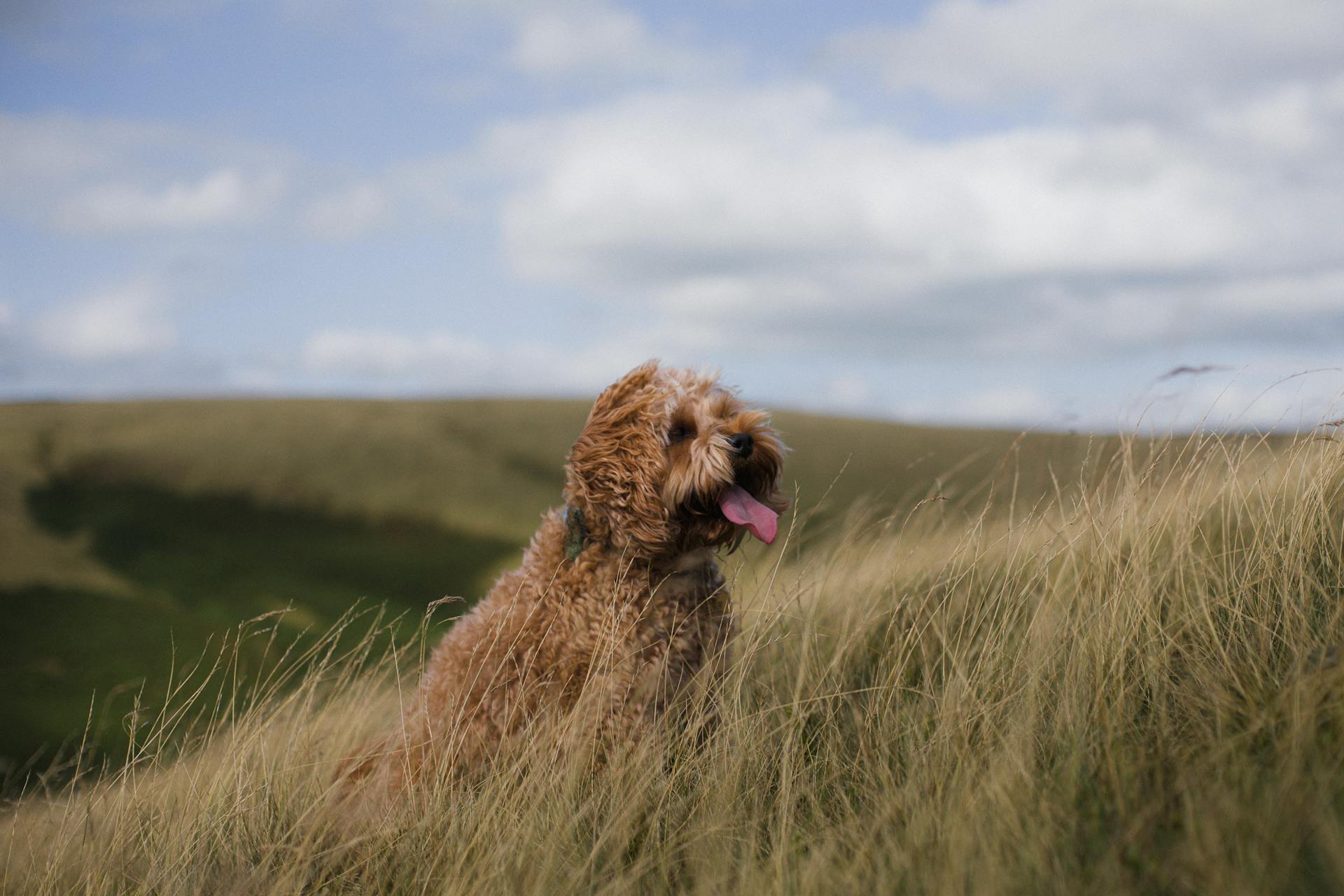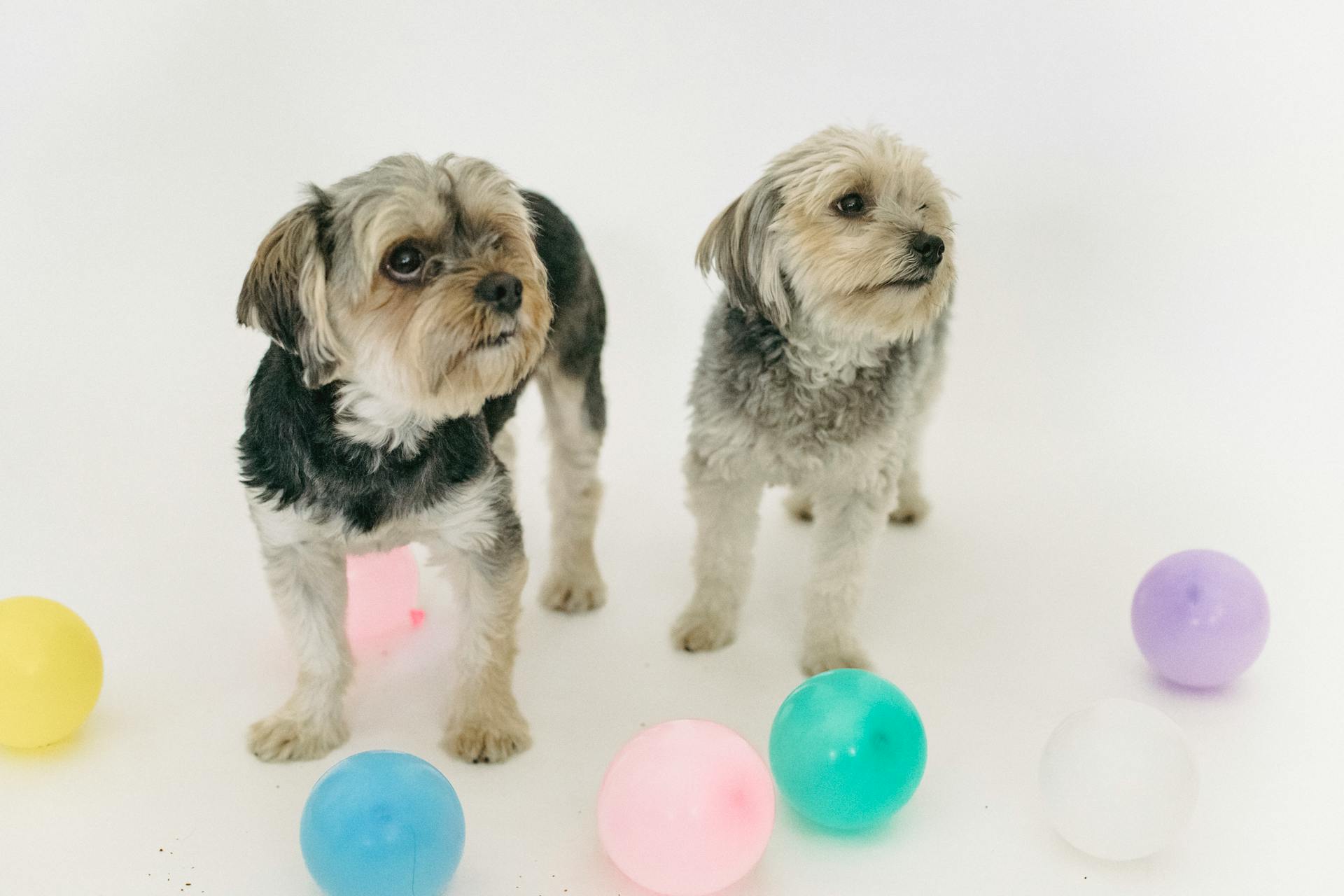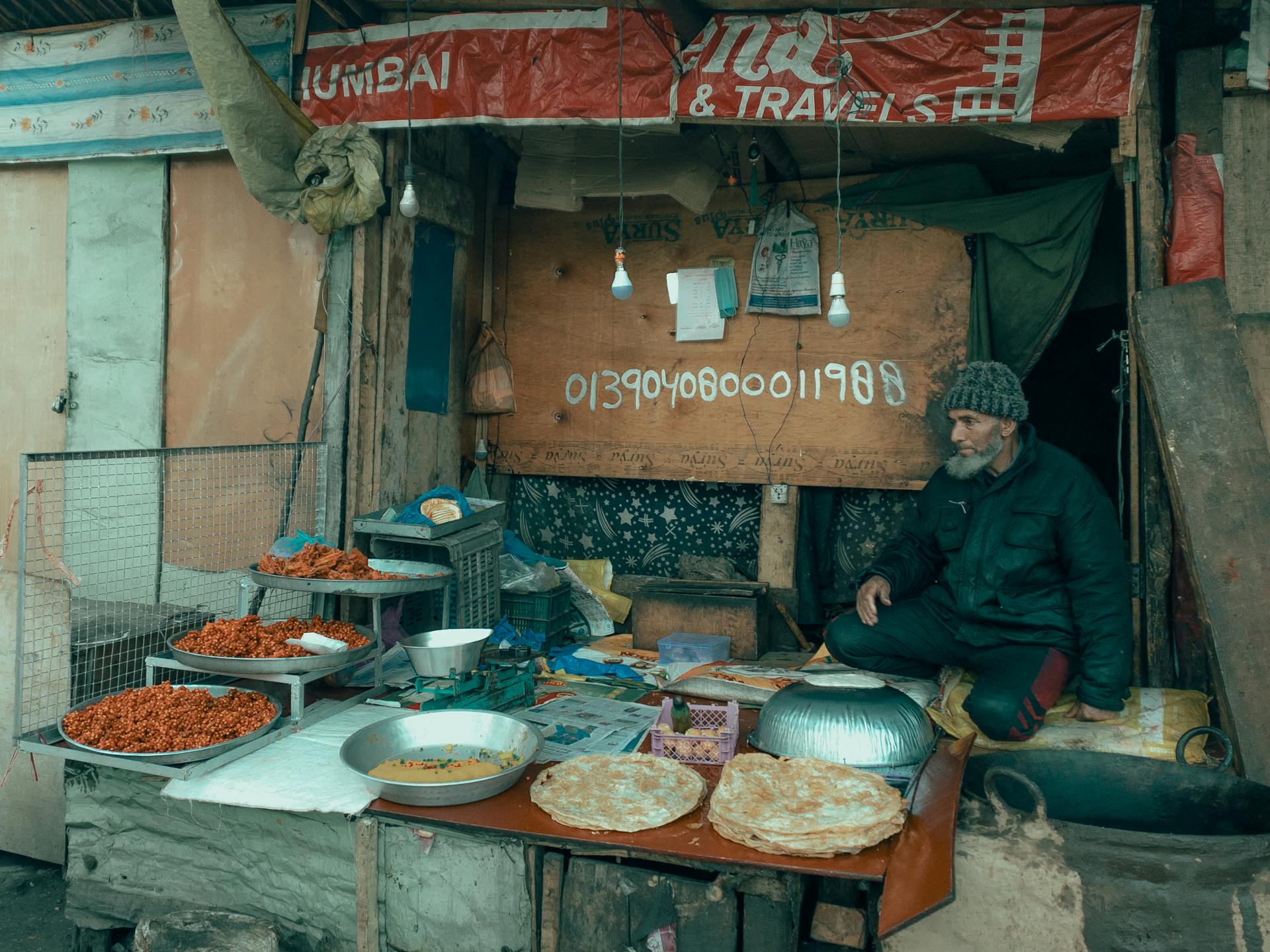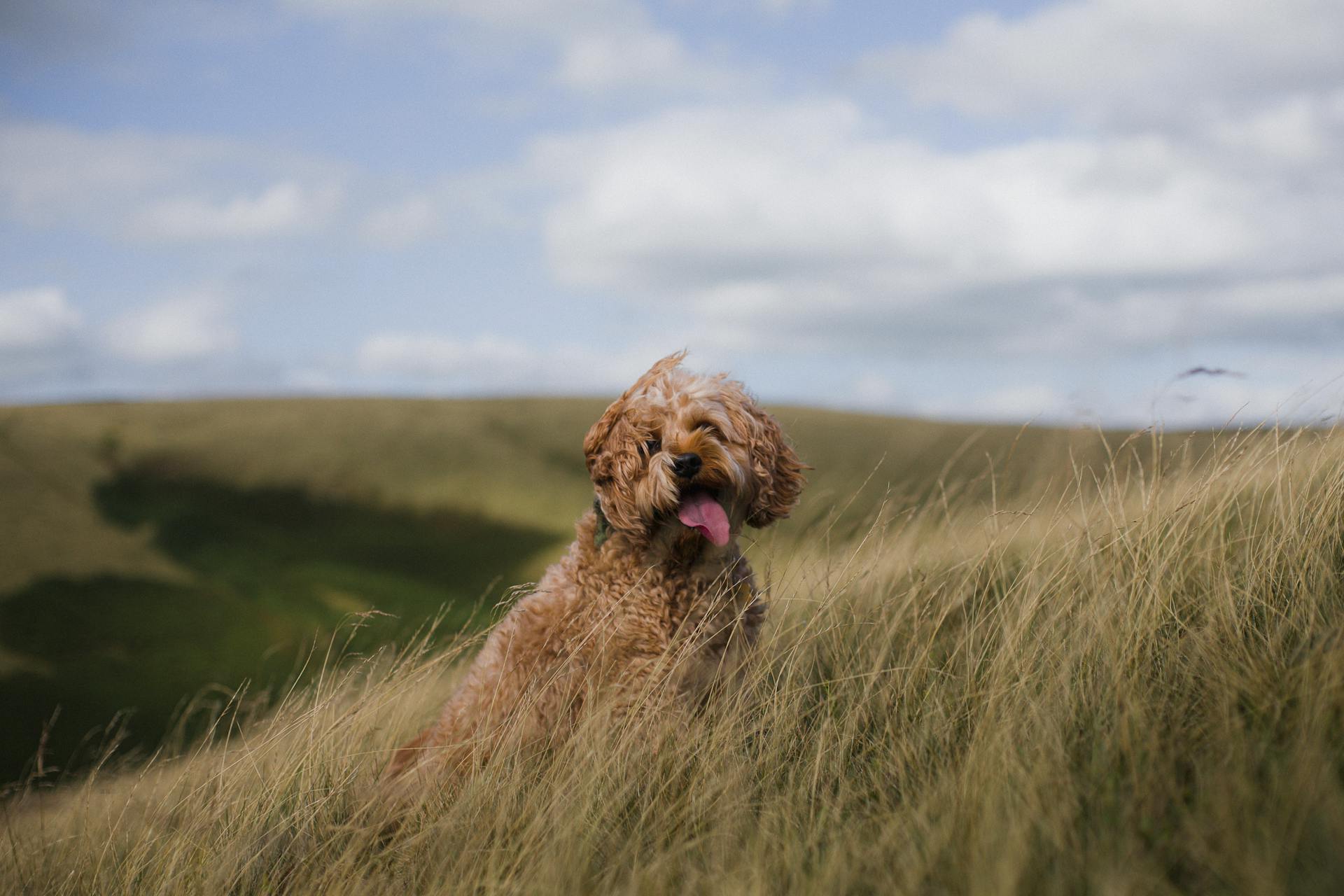
Congratulations on adopting a Malshi! These adorable dogs are a cross between a Maltese and a Shih Tzu, and they're known for their friendly, outgoing personalities.
Malshis are small dogs, typically weighing between 4-7 pounds and standing between 8-10 inches tall. They have a long, flowing coat that requires regular grooming to prevent matting.
As a Malshi owner, you'll want to brush your dog's coat daily to prevent tangles and keep them looking their best. This will also help reduce shedding and prevent hair from getting everywhere.
Malshis are intelligent dogs and respond well to positive reinforcement training. They're relatively easy to train, but consistency and patience are key.
Care and Feeding
Caring for a Malshi is a big responsibility, but their small size makes them perfect for apartment living. They don't need a lot of space, but they do need daily walks and playtime.
Malshis are social dogs who need close companionship throughout the day. Leaving them alone for too long can lead to loneliness, boredom, and behavior issues. They thrive on attention and interaction.
To determine the best feeding schedule for your Malshi, consult with your veterinarian. Malshi puppies need frequent meals to avoid hypoglycemia, while adult Malshis can be fed less frequently.
Here's a quick reference guide to help you get started:
Malshis are prone to dental issues, so regular brushing and dental chews are essential. However, they shouldn't replace regular brushing. Talk to your vet before adding anything new to your dog's diet, including supplements.
Feeding Guidelines
Feeding your Malshi requires a personalized approach. You'll want to work with your veterinarian to develop a feeding plan that's tailored to your pup's age, weight, and health.
Your veterinarian can help you determine the best feeding schedule for your Malshi, whether it's three or four meals a day for puppies or two or three meals a day for adults.
The nutrition label on your dog's food bag includes a general idea of how much to feed your Malshi based on their weight, but it's best to consult with your veterinarian for a precise answer.
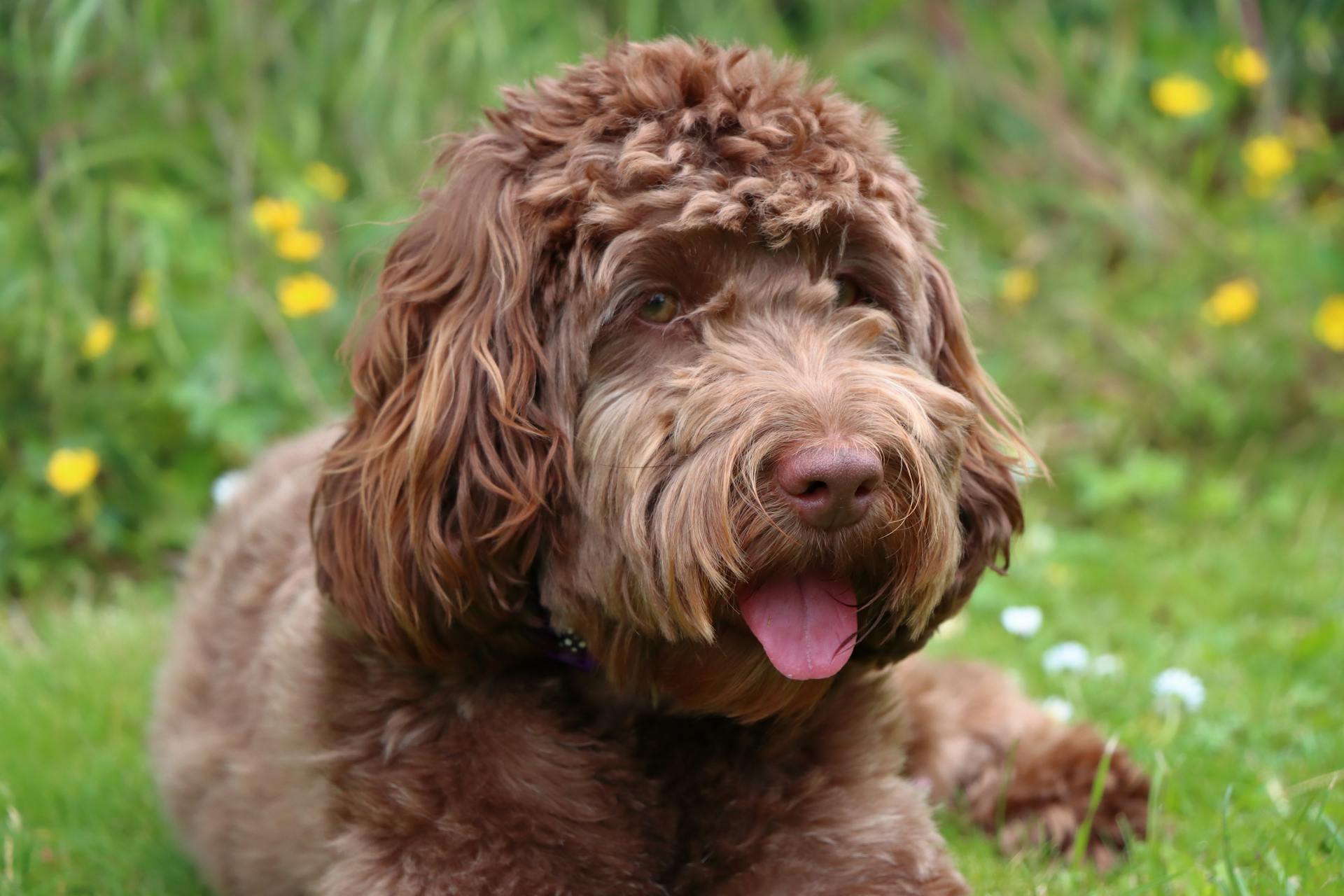
Your vet will take into account your dog's weight, body condition score, lifestyle, and health needs to provide a customized feeding recommendation.
Remember to factor treats into your Malshi's daily calorie allotment, as they can add up quickly.
If your Malshi is eating a complete and balanced diet of dog food approved by the AAFCO, they shouldn't need anything extra, but it's always a good idea to consult with your veterinarian before adding anything new to their diet.
Your Malshi's meals should be brimming with nutrient-friendly ingredients, and mixing dry kibble with wet dog food can be a great way to provide a varied diet.
Pet Care Considerations
Malshis are social dogs that thrive on companionship. They need to be with their owners throughout the day, so leaving them alone for too long can lead to loneliness, boredom, and behavior issues.
Malshis are small dogs, but they still require regular exercise and mental stimulation. A daily walk and playtime are essential, and they need to be provided with a variety of toys and activities to keep them engaged.
You should consider your living situation before bringing a Malshi home. Toy dogs aren't recommended for homes with small children, as they may not be able to handle the rough play and potential harm. It's also essential to ensure that your home is safe for a small dog, with no hazards or animals that may pose a threat.
Here are some key questions to ask yourself before bringing a Malshi into your family:
- Can I brush a dog's coat at least once a day?
- Can I brush a dog's teeth at least three times a week?
- Do I live in a home where a toy dog would be safe from humans and animals that could cause unintentional harm?
- Am I home often enough to give a dog companionship?
- Do I have the time to provide a dog with mental and physical exercise every day?
- Do I have the skills, patience, and dedication to train a dog using positive reinforcement?
- Am I financially prepared to provide veterinary care, including regular dental cleanings?
- Can I provide a dog with a loving home for their lifetime, which could be 18 years or more?
Answering "yes" to these questions will give you a better idea of whether you're ready to provide the care and attention a Malshi needs.
Hypoallergenic Dogs
If you're considering getting a dog but have allergies, you're in luck because there are breeds that are considered hypoallergenic.
Malshis are one such breed, and they're "hypoallergenic" dogs because both parent breeds shed less than other breeds.
This means you're less likely to experience allergy symptoms, but it's not a guarantee, and you should still take precautions to minimize exposure to dog dander.
Health and Wellness
As a Malshi owner, you're likely aware that these adorable dogs can be prone to certain health issues. A Malshi's lifespan is similar to that of its parent breeds, with an average life expectancy of 12-15 years.
Regular veterinary check-ups are crucial to ensure your Malshi stays healthy and happy. Take your pup to the vet for annual check-ups to stay on top of vaccinations and general wellness.
Patellar luxation, dental issues, eye problems, and reverse sneezing are some potential health issues that may arise in your Malshi over time. It's essential to be aware of these conditions and work closely with your vet to prevent or manage them.
The Shih Tzu side of the Malshi breed is particularly susceptible to brachycephalic syndrome, which can lead to breathing problems, digestive issues, and other health concerns. While Malshis may have longer muzzles than their Shih Tzu parent, they can still be at risk for these issues.
Here are some potential health issues to watch out for in your Malshi:
- Patellar luxation
- Dental issues
- Eye problems
- Reverse sneezing
Grooming and Maintenance
Malshi grooming is a regular part of dog ownership.
Malshi pups are known for their hypoallergenic coats that require minimal shedding, but they still need regular grooming. They'll need to visit a professional groomer every 4 to 6 weeks for a trim, and you can get creative with their hairdo.
To keep your Malshi clean and healthy, brush their coat daily, trim their nails regularly, and clean their ears frequently. It's also essential to clean the corners of their eyes, as they're prone to drainage. Brushing their teeth regularly, starting from puppyhood, can prevent dental issues later in life.
Here are some key grooming tasks to remember:
Ear Care
Ear Care is a crucial part of your Malshi's grooming routine. Regular ear cleaning is essential to prevent infections, especially since Shih Tzus are prone to ear infections due to their floppy ears and ear hair.
You should ask your veterinarian how and how often to clean your dog's ears, as some Malshis may be more prone to infections than others. They can also advise on whether to pluck hair in the ear canal.
Cleaning the corners of your Malshi's eyes is also important, as these dogs are prone to drainage. This can be done as part of their regular grooming routine.
Regular ear cleaning can help prevent infections, but if you notice signs of infection, such as redness, odor, pain, or itchiness, it's time to visit the vet.
Grooming Guide
Grooming is a crucial part of your Malshi's life. You'll need to visit a professional groomer every 4 to 6 weeks for a good trim, and you can get creative with their hairdo.
To keep your Malshi looking and feeling their best, you'll need to brush their coat daily. This will help prevent matting and tangling, and make it easier to style their fur. Expect to spend around 10-15 minutes a day brushing their coat.
In addition to brushing, you'll also need to keep up with nail trims, ear cleanings, and brushing their teeth regularly. This will help prevent dental issues and keep their ears clean and dry.
Here are some essential grooming tasks to keep in mind:
- Nail trims
- Ear cleanings
- Brushing their teeth
- Cleaning the corners of their eyes
Regular grooming will not only keep your Malshi looking great, but it will also help prevent health issues down the line. So make sure to prioritize grooming and make it a regular part of your routine.
Behavior and Training
Malshis are social dogs that thrive on human interaction, and they can get anxious if left alone for too long. This can lead to boredom, anxiety, and behavior issues like barking, chewing, and house soiling.
Malshis are intelligent and eager to please, but they can be a bit willful. Consistent positive training that uses rewards instead of punishment is essential for their development.
They need to be socialized from an early age, and pet parents must continue socializing their Malshi puppy as soon as they bring them home. This helps them interact with humans and other animals.
Malshis have a wonderful temperament and a fun-loving personality, but they can be a bit wary of strangers. They're naturally obedient and well-mannered, but they need consistent training to reach their full potential.
Positive training time is crucial for exercising their brain and body, and it helps build a strong bond between the dog and their owner. Malshis respond best to delicious treat rewards and lots of praise rather than harsh tones or punishments.
Malshis are adaptable and fit in well in both relaxed and active lifestyles. They love to cuddle, chase toys, play games of fetch, and explore the world with their owners by their side.
Fun Activities
Engaging with your Malshi is crucial for their physical and mental well-being.
One of the best ways to do this is through regular neighborhood walks. These walks provide a great opportunity for your Malshi to get some exercise and sniff out new sights and smells.
Malshis love to play, and whether it's indoors or outdoors, they'll appreciate the chance to run around and have some fun. Indoor play is especially great for rainy days or when you're short on time.
Skills training is also an essential part of a Malshi's development. It helps them learn new behaviors and build their confidence.
Obedience training is another key aspect of a Malshi's training. It teaches them to listen to commands and behave well in different situations.
Owning a Dog
Owning a Malshi requires a lot of time and attention, so make sure you're home often enough to give them companionship.
These dogs love to be around people and can suffer from separation anxiety if left alone for too long.
They're not suited for households where they'll be alone most of the day, so if you have a busy schedule, consider hiring a dog walker or asking a neighbor to check in.
Malshis are small dogs, but they're not toys, so make sure your home is safe from humans and animals that could cause unintentional harm.
Here are some key considerations for pet parents:
- Can I brush a dog’s coat at least once a day?
- Can I brush a dog’s teeth at least three times a week?
- Do I live in a home where a toy dog would be safe from humans and animals that could cause unintentional harm?
- Am I home often enough to give a dog companionship?
- Do I have the time to provide a dog with mental and physical exercise every day?
- Do I have the skills, patience, and dedication to train a dog using positive reinforcement?
- Am I financially prepared to provide veterinary care, including regular dental cleanings?
- Can I provide a dog with a loving home for their lifetime, which could be 18 years or more?
If you can answer these questions with an enthusiastic "Yes!", you may be ready to parent a Malshi.
Mal-Shi Basics
The Mal-Shi is a designer hybrid breed, a mix between a Shih Tzu and a Maltese. They originated in the United States during the 1990s as a hypoallergenic companion pet.
These dogs are known for their loving nature and cheerful personality, making them perfect little lapdogs. They are among the most popular toy designer hybrids in the United States, Europe, Australia, and Asia.
The Mal-Shi is a small dog, weighing between 6-14 pounds and standing 9-12 inches tall. Their coat can be straight, wavy, or curly, and they come in a variety of colors, including white, brown, gray, and yellow.
Here are some key characteristics of the Mal-Shi:
The Mal-Shi is generally quiet and laid-back, but they can be prone to separation anxiety if left alone for long periods. They make great pets for families, couples, and seniors, but may not be the best fit for households where they'll be alone most of the day.
Special Considerations
As you consider bringing a Malshi into your life, it's essential to think about the special considerations that come with pet ownership.
You'll need to brush your Malshi's coat at least once a day, which can be a great bonding experience, but it does require a daily commitment.
To ensure your Malshi stays healthy, you'll need to brush their teeth at least three times a week, which can help prevent dental problems down the line.
Malshis are toy dogs, so you'll need to make sure your home is safe from humans and animals that could cause unintentional harm.
You'll also need to provide your Malshi with companionship, which means being home often enough to spend time with them.
Daily mental and physical exercise is crucial for your Malshi's well-being, so you'll need to make time for activities like walks, playtime, and training.
Training a Malshi requires patience, dedication, and the right approach – positive reinforcement is key.
Providing veterinary care, including regular dental cleanings, is a significant financial commitment, so you'll need to be prepared to invest in your Malshi's health.
With a lifespan of 18 years or more, you'll need to be prepared to provide a loving home for your Malshi for their entire life.
Frequently Asked Questions
What are the pros and cons of Malshi?
The Malshi is a friendly and playful breed suitable for families with older children, but requires supervision due to potential biting risks with small children. With proper care, they make loving and entertaining companions.
Do Malshi dogs bark a lot?
Malshis are generally quiet dogs, but may bark excessively if they're lonely, bored, or anxious. If you're considering a Malshi, understanding their potential vocal needs is essential.
How big will a Malshi get?
A full-grown Malshi typically weighs 6-12 pounds and stands 10 inches tall. This size is influenced by the breed's Maltese and Shih Tzu heritage.
Does a Malshi have hair or fur?
A Malshi has a long, silky coat that sheds minimally. Regular grooming is necessary to prevent matting and keep their coat healthy.
What is the life expectancy of a Malshi dog?
The life expectancy of a Malshi dog is 12 to 14 years, which is considered great for a crossbreed. This breed's longevity is a notable advantage for Malshi owners.
Featured Images: pexels.com
